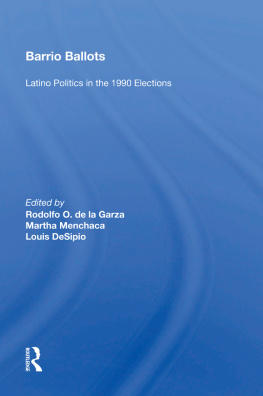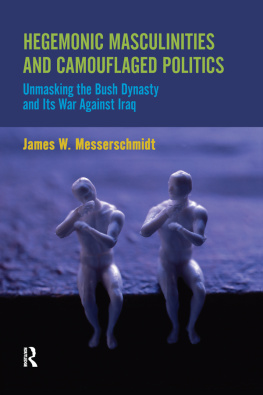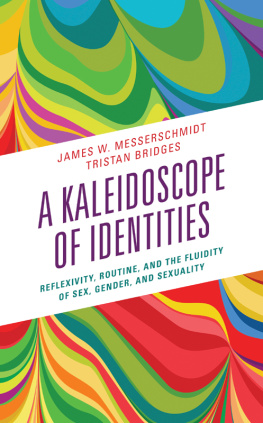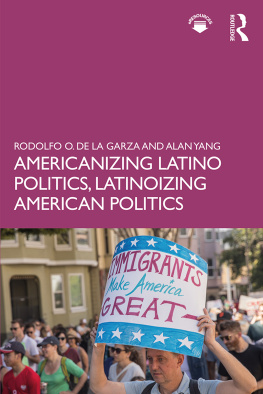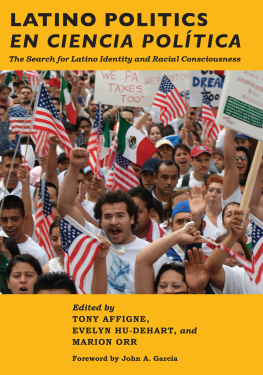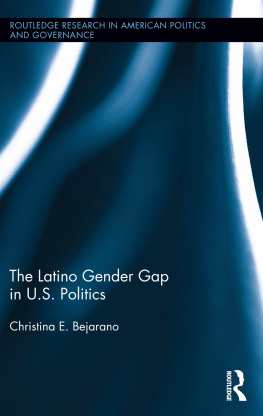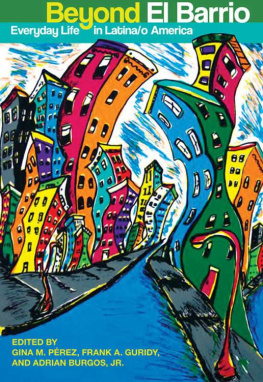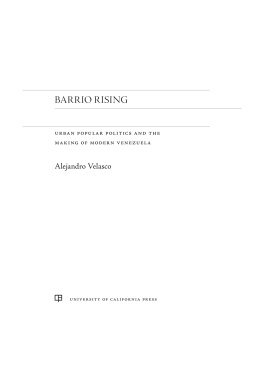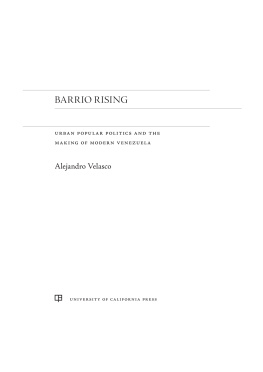First published 1994 by Westview Press
Published 2018 by Routledge
52 Vanderbilt Avenue, New York, NY 10017
2 Park Square, Milton Park, Abingdon, Oxon OX14 4RN
Routledge is an imprint of the Taylor & Francis Group, an informa business
Copyright 1994 by Taylor & Francis
All rights reserved. No part of this book may be reprinted or reproduced or utilised in any form or by any electronic, mechanical, or other means, now known or hereafter invented, including photocopying and recording, or in any information storage or retrieval system, without permission in writing from the publishers.
Notice:
Product or corporate names may be trademarks or registered trademarks, and are used only for identification and explanation without intent to infringe.
Library of Congress Cataloging-in-Publication Data
Barrio ballots: Latino politics in the 1990 elections / edited by
Rodolfo O. de la Garza, Martha Menchaca, and Louis DeSipio.
p. cm.
Includes bibliographical references and index.
ISBN 0-8133-8573-3
1. Hispanic AmericansPolitics and government. 2. United States
Politics and government1989-1993. 3. ElectionsUnited States
History20th century. I. De la Garza, Rodolfo O. II. Menchaca,
Martha. III. DeSipio, Louis.
E184.S75B37 1994
323.1'168dc20 93-29239
CIP
ISBN 13: 978-0-367-00774-4 (hbk)
A major natural experiment has been taking place in the United States in recent decades. New waves of immigration have brought in large populations and thrown them, usually with little preparation, into American life. In the classic agricultural experiment, one holds everything constantfor instance, the soil, the weather, the water, the fertilizerand varies one thing, such as the seeds. The constant in this case is American society; the seeds are the immigrants coming from different cultures. The situation cries out for comparative study of the different immigrant groups. And for the political scientist the natural subject matter is the incorporation of these groups into American political and civic life.
The American polity has traditionally been fairly open to new groups coming from other countries. A competitive electoral system provides a major incentive for political elites to convert immigrants into voters and, hence, into constituents. Indeed, throughout much of American history, the major legal and quasi-legal barriers to political participation have been raised against African Americans, not against the foreign-born. This openness has not applied to Latinos, either, whether immigrants or U.S.-born. In many places, particularly in the Southwest, various barriers, including linguistic ones, have in the past kept Latinos out of the voting booth and out of politics more generally. But since the voting rights acts of the 1960s and the 1970s, these barriers to African Americans and to Latinos have fallen as well.
New immigrants to the United States face no insurmountable legal impediments to joining the political systemto becoming citizens, to becoming voters, and to going beyond voting to become participants in the political process in all the myriad ways in which citizens take part. And whatever legal difficulties there are in becoming a citizen or joining the ranks of the electorate, they are difficulties placed with relative equality before all groups.
But the absence of legal barriers to full political participation is just the beginning of the story. The other factors that enhance or impede civic involvement make the story much richer and the experiment much more interesting. To become a participant one needs resources, one needs motivation, and one needs to be connected to networks that give access to the political process. Immigrants come to America with differing economic resources, and differing levels of linguistic and civic skills. They also come with a different understanding of and commitment to democratic norms. They bring different networks with them. And once here, they are exposed to new resource development opportunities through the economy and through education as well as to new group interests and group norms. In additionand of crucial importancethey find a political process more or less open and welcoming, depending on the political and social conditions of the places where they settle.
The natural experiment cries out for close social science study. How do different groups fare? And what makes some do better than others? The Latino National Political Survey (LNPS) and the associated Latino Political Ethnography Project (LPEP), the latter the subject of this book, represent a major attempt to answer these questions for three Latino groups: those of Cuban, Mexican, and Puerto Rican origin.
Of course, the real world never delivers to us neat experiments. We do not have different seeds placed in the same soil and treated the same way so that we can isolate the effects of the nature of the seeds from all else. Indeed, a close look at Latinos in American politics makes clear how complex is the experiment. The three groups differ in their place of origin, which might form the basis for our experimental comparison of the three kinds of seeds being planted in American political soil; however, the three groups differ in many and complex ways. One is class: Cubans are more likely to be middle class in origin than are Puerto Ricans or Mexican Americans. Another is citizenship: Puerto Ricans have the advantage here. And one of the most important differences based on place of origin is the relationship of the group in America to the homeland. Cuban American politics is dominated by the considerations of the homeland in a way not evident in the other two groups.
The three groups differ from each other, but that does not mean that they are homogeneous internally. Occupation, educational attainment, length of residence in the United States, and English capability all divide each of the three Latino groups, just as they divide most other population groups. Thus, we plant a complex set of experimental seeds.
In addition, our varied experimental seeds are not all planted in the same soil: Los Angeles is not Chicago, Miami not New York, and Houston something else again. The nature of the preexisting political system and how it responds to the new groups are important. As the various ethnographies show, the nature of the party system and the system of elections has a significant effect on the way in which Latinos enter into and act within the political process. The variety of settings, from the decaying but still significant Chicago machine to the highly decentralized politics of New York, structures the issues facing the Latino community as well as the opportunities to become politically active that are open to them.
The Latino National Political Survey and the Latino Political Ethnography Project thus faced a task as formidable as it was important. How does one approach such a topic? The controlled experiment provides a useful logic, not because we can come even close to approximating it, but because it tells us how we might begin designing research to provide reliable and valid description and explanation. The notion of an experiment suggests that we ought to make careful comparisons and that they ought to be systematic. The two projects did this, one in the framework of a national sample survey and the other in the framework of parallel ethnographies across five Latino communities. The combination allows one to grapple in a reasonable manner with the analysis of the complex social experiment going on in America.


